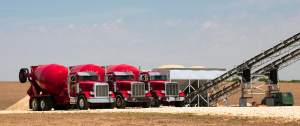
The chances are if you work in the trucking industry, especially OTR driving, you have heard of per diem pay.
However, even for the most experienced drivers, this important benefit can sometimes seem confusing to understand. With changing federal regulations and differing company policies, drivers often must figure out on their own what expenses are covered by per diem and how to receive their compensation.
Interested in learning more? Keep reading to find out everything you need to know about per diem pay, from the most recent IRS (Internal Revenue Service) regulations to how you can make the most of your earnings.
What is Per Diem Pay?
Simply put, per diem refers to non-taxable money paid to truck drivers to reimburse for expenses on the road, such as meals or lodging. Per diem, which means “by the day” in Latin, is available to eligible drivers every day they are on the road, at least 50 miles from home.
The reimbursement structure differs by employer, with some providing a debit card before trips, while others add a cents-per-mile (CPM) rate to regular take-home pay. Employers also can decide the daily monetary allowance amount, up to the current IRS maximum of $69 per day within the continental US. For travel outside the continental US, such as Canada, the rate is $74 per day.
Since per diem is simply a reimbursement for expenses you already paid, the money is not considered taxable income. This distinction is important because it means your adjusted gross income will be lower when filing taxes. A lower gross income is better because it means you will likely owe less in taxes or could receive a bigger refund.
When filing taxes, drivers can either choose to deduct 80% of their actual meal expenses or the IRS per diem rate. It is important to keep an eye on these regulations regarding the percentage and IRS rate because they can change every year.
Expenses Covered by Per Diem
Per diem pay exists to reimburse drivers for expenses incurred on the road that would otherwise be handled at home.
This can include expenses such as lodging, meals, showers, and other incidental expenses like laundry or tips. However, company drivers should always ask their employers what expenses are included. Because per diem policies can vary widely, it is important to understand company regulations before making purchases and planning expenses.
Are Owner-Operators Covered?
The process to file per diem pay for owner-operators is a little different than for company or contract drivers, but it can still provide a major benefit every tax season.
Unlike company drivers, who receive reimbursement for expenses, owner-operators typically don’t get direct per diem payments from an employer. Instead, owner-operators can directly deduct per diem expenses when filing income tax returns each year.
To do this, drivers must maintain complete and accurate records, including receipts, logs, and trip summaries, to support their per diem claims. The IRS allows owner-operators to deduct 80% of the same standard rate of $69 a day for continental US travel, or the cost of actual expenses.
How to Maximize Your Reimbursements
For both company drivers and owner-operators, maximizing your per diem pay is important to take full advantage of the benefit.
Keep accurate records of any purchases eligible for per diem reimbursement. This is especially important for owner-operators, who might be required to submit documentation of expenses to tax collectors. For company drivers, this practice can be useful to keep track of spending and maximize the daily allowance allocated by employers.
Understand tax rules and choose the best deduction method to make sure you are selecting the right option for your spending. Be sure to familiarize yourself with IRS guidelines regarding per diem deductions and monitor changing regulations. When deciding whether to use the standard IRS per diem rate or amount of actual expenses, calculate which method provides the most tax benefit for your situation.
Utilize technology to track spending, budget plan, and find travel recommendations from other drivers. There are many apps designed to help truckers manage receipts and expenses, as well as find cost-effective truck stops and restaurants while on the road.
If you are still unsure how to best use per diem to maximize your benefits, be sure to meet with someone within your company or a tax expert to discuss your options.
For more trucking industry tricks and tips, head to our Truck Driver Blog or connect with us on social media today.











